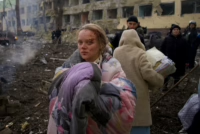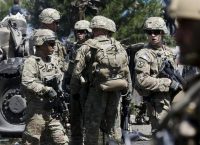
Who is winning?
Two years into the Ukraine war, the tide has shifted, and Russian forces have some momentum, according to retired US General David Petraeus.
But he said the Russians have suffered staggering casualties and Ukraine can still hold its own in fighting off Russian President Vladimir Putin’s invasion if it gets the support it needs from the United States.
Russia’s full-scale invasion of Ukraine, which began disastrously for Putin, marks its second anniversary this coming weekend. To get a better insight into the state of the war, I spoke to former CIA director David Petraeus, who was the commanding general during the US-led wars in Afghanistan and Iraq and is co-author with Lord Andrew Roberts of the new book “Conflict: The Evolution of Warfare from 1945 to Ukraine”.… Seguir leyendo »







